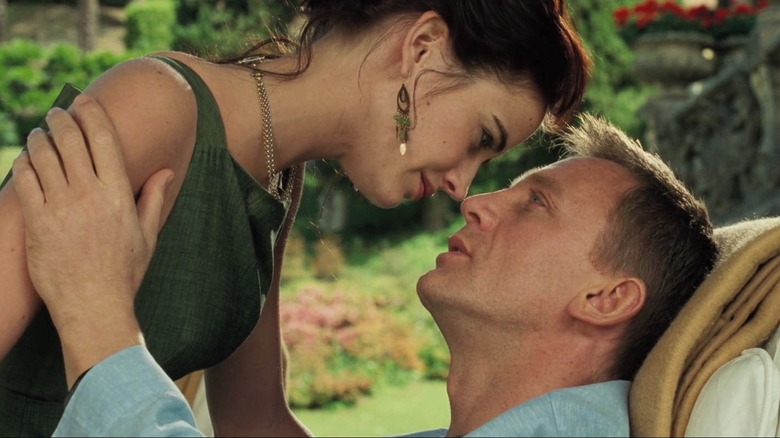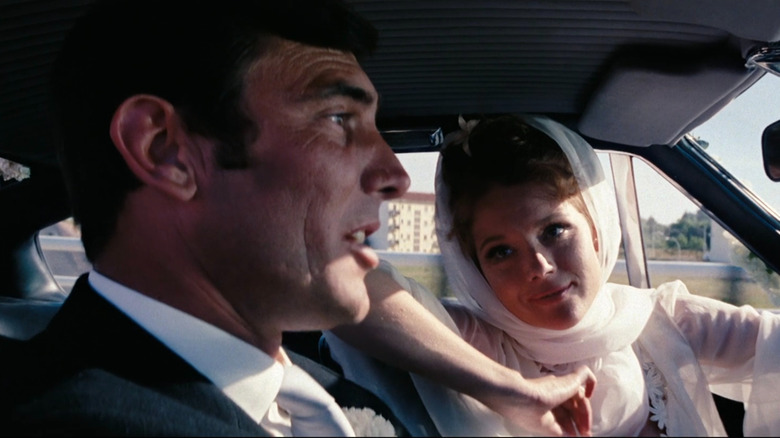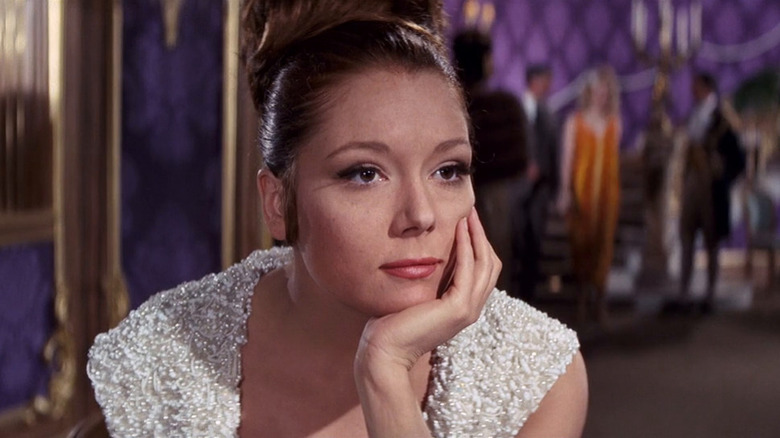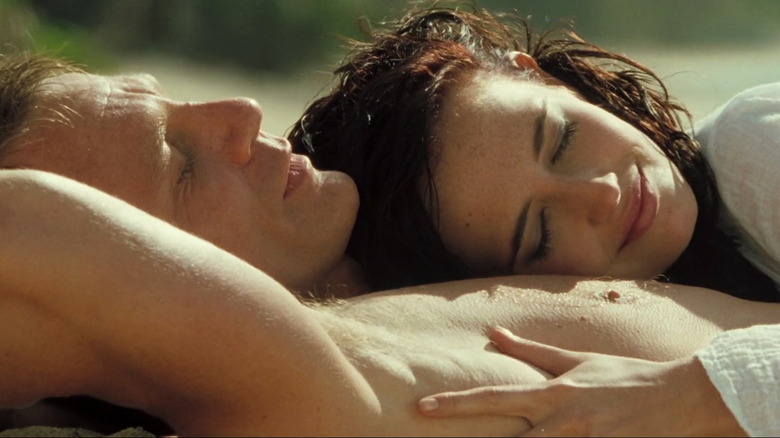How Casino Royale Reworked A Tragic Plotline From James Bond's Past
We may receive a commission on purchases made from links.
The Daniel Craig era of James Bond changed up the many decades-long film series in a number of different ways. Most notably was its tonal shift, steering further away from the goofier and campier elements of the series that the "Austin Powers" trilogy had so much fun lampooning. After all, once you make "Die Another Day," the only direction you can go is a more grounded one. But there had been serious James Bond films before, such as the earliest Sean Connery films or the Timothy Dalton era. The bigger change the Craig films made was taking a page out of the modern franchise booklet, and that was serialization.
The first 20 James Bond films may have brought actors and filmmakers over from one film to another, but the plots of those films rarely carried over. Part of the pleasure of Bond was that he received a new mission at the beginning of every film, which then saw him carry it out. The behaviors that would show up from film to film, like Bond flirting with Moneypenny, were character quirks and not things that would build over the course of the series. Considering this was an ongoing series with no end in sight, this method allowed anyone at any time to jump into the next movie without worrying about catching up on anything.
Well, there was one story element they attempted to track through the series to mixed results, and that was Bond's grief from the murder of his wife Tracy in "On Her Majesty's Secret Service." While an extremely effective moment in and of itself, the lingering effects of that unfortunate event make themselves known in subsequent films in fits and starts, and the Craig era of Bond would be able to handle this kind of tragedy far better in its own way.
The tragedy of Tracy Bond
Tracy di Vincenzo arrives in the one and only James Bond film that stars George Lazenby in the lead role, "On Her Majesty's Secret Service." Played exquisitely by Diana Rigg, her and Bond's romance forms the emotional backbone of that film, and after the mission has been accomplished, the two of them actually get married, which is already unusual considering Bond movies generally end with Bond delivering some sexual double entendre as he's about to get it on with that film's love interest. Despite Lazenby's underwhelming portrayal of Bond, it's this romance that makes "On Her Majesty's Secret Service" such a favorite amongst Bond fans. It also makes what happens to Tracy all the more heartbreaking, as she is quickly murdered by Blofeld (Terry Savalas) in a drive-by shooting. It happens so abruptly and shatters both Bond and the audience.
You would think that something of this magnitude would be major for the character going forward, but its impact is enormously inconsistent. There will be a passing mention here and there to Tracy or Bond's past, but rarely in an overly meaningful way. The most explicit reference to Tracy comes in the opening of "For Your Eyes Only" when Bond visits Tracy's grave, but that is 12 years later and an entirely different actor performing it, minimizing the impact. Even that moment in "For Your Eyes Only" gets undercut when you realize this whole opening is just an excuse to dispatch Blofeld by dropping him into a large factory exhaust chimney from a helicopter because Eon Productions no longer had the rights to use that character.
Time charges on
How much of how little the subsequent films would acknowledge Tracy Bond was always up for debate. In the book "Nobody Does It Better: The Complete, Uncensored, Unauthorized Oral History of James Bond" by Mark A. Altman and Edward Gross, the screenwriter for most of the pre-Craig Bond pictures, Richard Maibaum, said of the Tracy references, "I would have liked to see more of it threaded through the pictures. But the tone of the pictures was different in the middle part of the saga." As the films continued to get sillier, bringing in authentic trauma from a murdered loved one would only serve one purpose: killing the fun of the movie. You can't have a grief-stricken, brooding Bond in a movie where a pigeon does a double take or the villain blows up like a balloon.
The further the series went along, the tougher it was to point back to Tracy. As much as they would like for us to think this is one continuous timeline, the actual timeline of the world makes that difficult. Michael France, co-writer of 1995's "GodenEye," initially wanted to reference her but ultimately couldn't justify it:
"There's a moment in 'GoldenEye' when Alec Travelyan comments on whether or not all those vodka martinis drown out the sound of all the women Bond couldn't save. The first version of that line was to the woman he couldn't protect, meaning Tracy. I would have loved for that to go in, but I guess it gets a little tricky to keep referring back to a movie that, then, was from 25 years earlier."
Frankly, the lack of serious serialization was always going to prevent her memory from ever landing the way they hoped. For the film she was in, it worked. That's all they needed.
Making it count
When Eon Productions opted to do a full reboot of the James Bond series, they also were able to take a stab at properly executing a story about how the death of a loved one would go on to shape how he views women, love, and relationships in the future. With Eva Green's Vesper Lynd in "Casino Royale," you also have the added wrinkle that she betrays Bond in the end and chooses to die, rather than be abruptly murdered. "Diamonds Are Forever," the first film after "On Her Majesty's Secret Service," does have an opening where Bond is tracking down Blofeld for revenge, but that motivation is quickly abandoned. Meanwhile, Vesper haunts the "Casino Royale" followup "Quantum of Solace." As Lisa Funnel puts it in "Nobody Does It Better:"
"She dies in 'Casino Royale,' but in 'Quantum of Solace' she's still there. You have the Vesper martini, you have the Algerian love-knot necklace, you have the Vesper theme. You have Bond being so lovesick on her that he's getting drunk on these martinis just to consume her."
And her presence is felt all the way through "No Time to Die," where Léa Seydoux's Madeline Swann needs Bond to visit Vesper's grave to achieve some proper level of closure before the two are able to have a full life together. Because Craig's Bond films have the space to delve deep into the darkness, that grief and rage can be explored without betraying the film's tone. Tracy may have been great for one movie, but Vesper made the kind of impact on the series they had been striving for the previous few decades.



